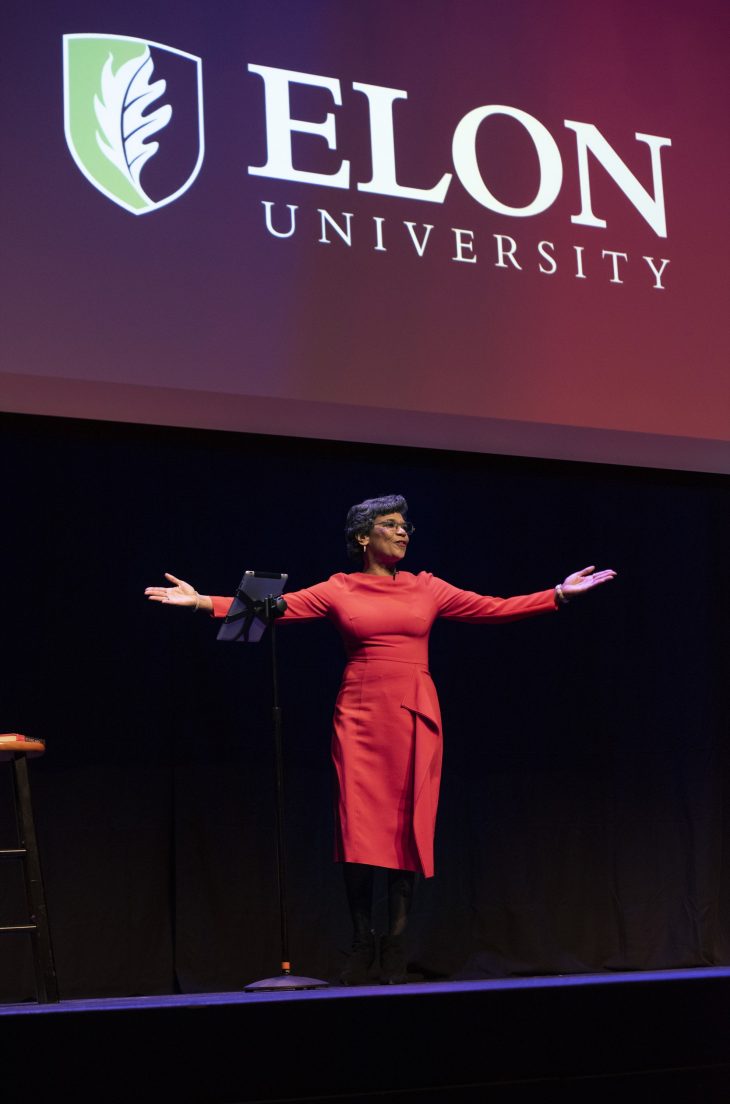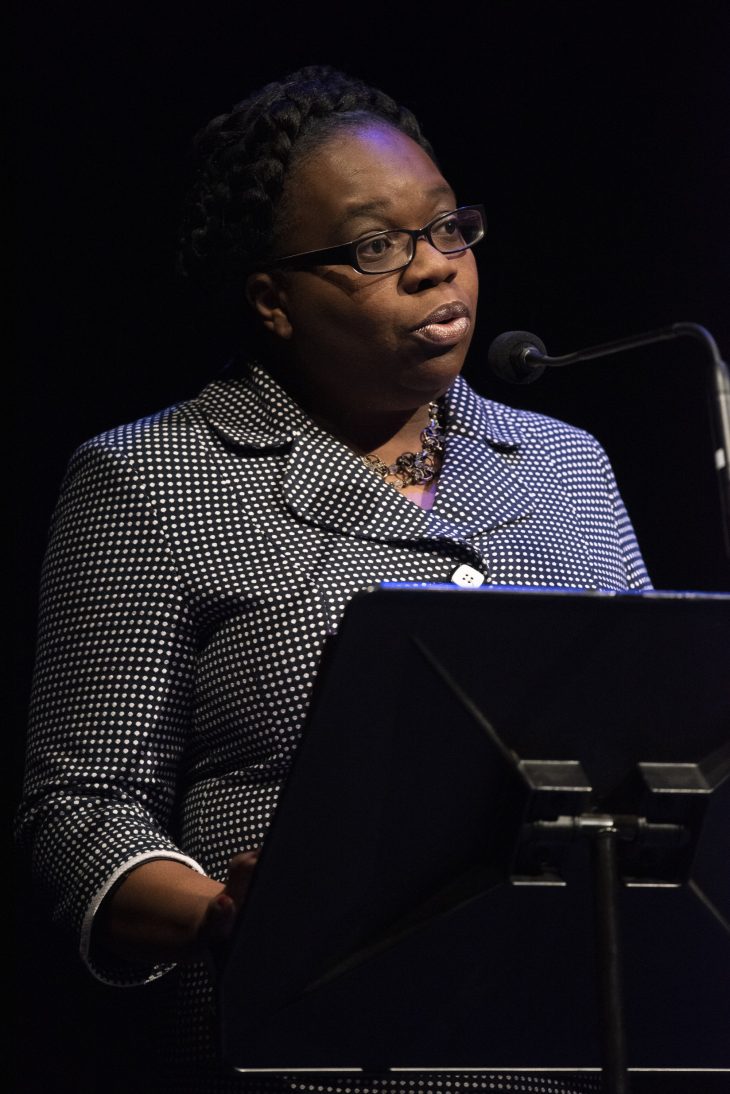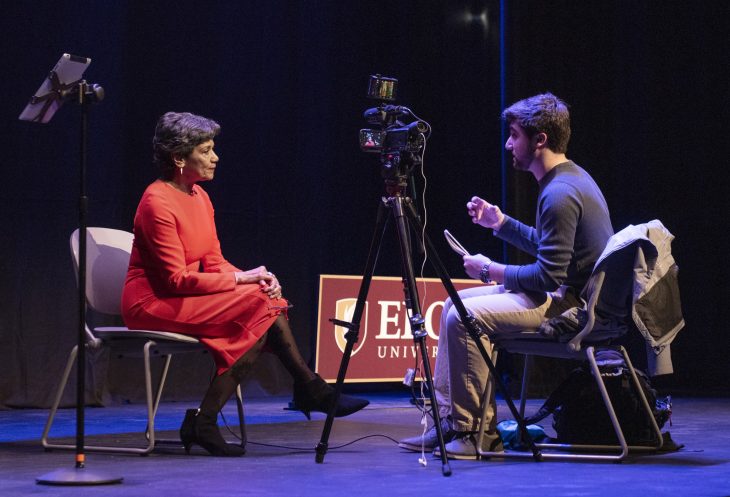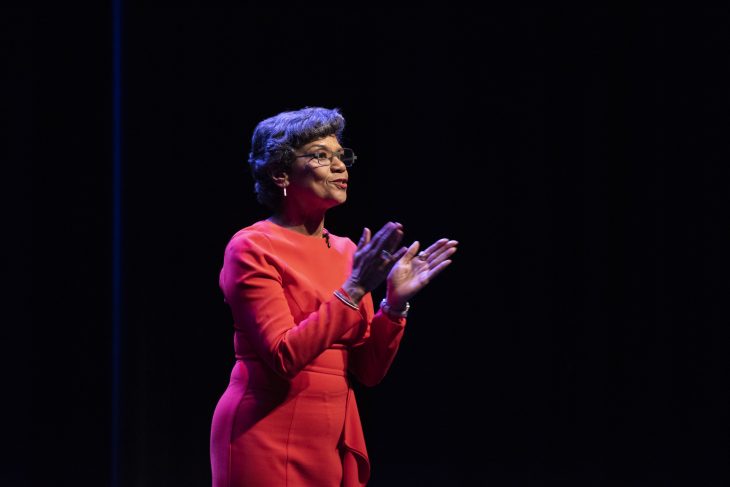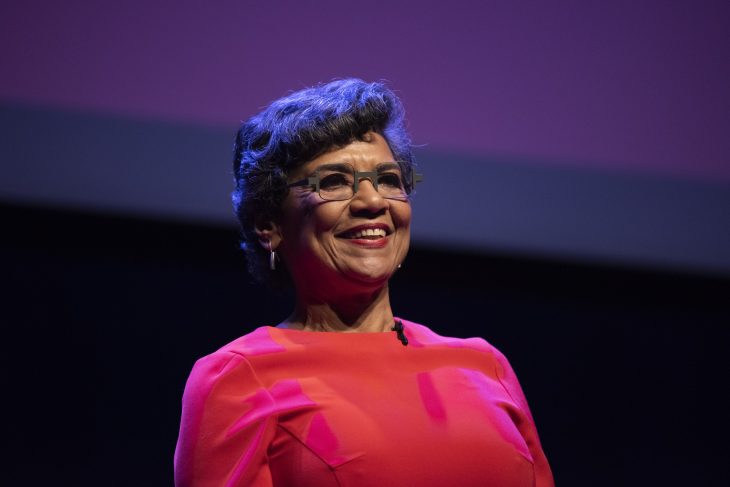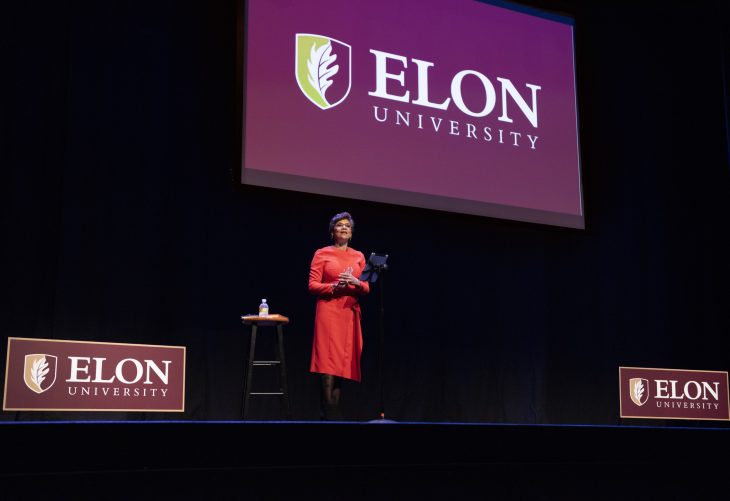Manzano, who portrayed "Maria" on "Sesame Street" for more than four decades, discussed how her early life and pride in her Puerto Rican heritage influenced her life in television.
As a child, Sonia Manzano spent a lot of time watching television. What she saw displayed on the screen in her South Bronx home didn’t reflect the people she saw in her own family or passed on the street. These shows were set in places that looked nothing like the neighborhood she found outside her front door.
“In all the hours I watched television, I never saw anyone who looked like me, or lived in the same neighborhood I did,” said Manzano, who is Puerto Rican. “Not seeing yourself reflected in the media has a stunningly adverse effect on you. It makes you think that you are invisible. It makes you think that society doesn’t see you and it makes you wonder what you could possibly contribute to a society that doesn’t see you.”
Manzano would change that for generations of young people who tuned in to “Sesame Street,” which recently marked the 50th anniversary of its first broadcast in 1969. Joining the cast in the first years of the show as “Maria,” Manzano would spend more than 40 years in the role with the iconic show after becoming the first Latina to be cast in a national television series.
On Tuesday night in McCrary Theatre on Elon’s campus, Manzano delivered the Martin Luther King Jr. Commemorative Address, drawing upon the words and legacy of the slain civil rights leader while talking about her own sense of her culture and heritage impacter her approach to teaching and reaching millions of children throughout her years on the air.
Manzano was a student at Carnegie Mellon University in Pittsburgh when she saw the first broadcasts of “Sesame Street,” and for the first time saw black actors and actresses playing warm and loving characters against a backdrop that mirrored her own neighborhood in the Bronx. “I was amazed,” Manzano told the crowd in McCrary. “Let me remind you that in 1969, you rarely saw anyone of color on television, and if you did, they weren’t the warm and loving couple that ‘Susan’ and ‘Gordon’ was.”
Manzano’s parents were originally moved from Puerto Rico to New York when she was still a child. Growing up, there was tension between what they said about the difficulty of their lives on the island, and their memories of life there and the special place it occupied in their hears. As the civil rights movement grew, Manzano said she initially had difficulty determining where exactly she fit as a Puerto Rican and Latina before gaining inspiration and pride from the activist group The Young Lords, which pushed for Puerto Rican self-determination and equality first in Chicago and then in New York.
“This had a profound effect on me,” she said. “All of a sudden I wanted to know more about my people and where I had come from. I became proud of who I was. I embraced the identification of being called, ‘nuyorican,'” a term adopted by Puerto Ricans who lived in New Work and melded the two cultures.
Within Puerto Rican families, including her own, she saw a diversity of skin colors, with some racially mixed cousins with darker skin, and some with skin lighter than hers. Seeing the ongoing struggle against segregation in Alabama and elsewhere in the South, as a child she was fearful of being separated from fellow Puerto Ricans based on the color of their skin.
“I worried that if my cousin and I found ourselves in the South, and had a take a bus, I would have to sit in the front, and I was sure then I would not know when it was time to get off,” she said. “On some deeper level, I felt afraid that our imagined bus separation would result in us seeing each other in a different light.
“I think Dr. King’s example and my own personal one illustrates the wearing down on children that inequality creates,” Manzano said. “It starts at an early age and the results are long-lasting. Sesame Street understood that. The idealistic idea behind the show was to help dispel years of children receiving messages that challenge their self-worth.”
It was Latino activists who pushed Sesame Street to expand the diversity of characters on the show, which resulted in 1971 in Manzano joining the cast as “Maria” and actor Emilio Delgado joining as “Luis.” The characters worked together in the Fix-It Shop where Manzano joked Tuesday she spent 44 years repairing the same toaster.
Manzano brought to the role her own experiences growing up in the Bronx and the pride that had grown within her of being a Puerto Rican and a Latina. “My effect on the show was in keeping with the social realizations I was going through at the time,” she said. “The producers kept telling me that Maria should be a real person. The only way to do that was to never forget who I was. So I always imagined a little kid watching television looking for comfort the same way I used to watch television to look for comfort.”
While proud of all that she, her cast members and the show has accomplished, Manzano said she is also disappointed that much of the momentum created during the civil rights movement has not led to sustained and broader changes in society. “We deny climate change even as we burn in the fires that climate change causes,” Manzano said. “We are living in such harsh, unsympathetic times. People aren’t happy to win elections. They have to kick the defeated as well.”
That said, the civil rights movement and the legacy of King have shown that things can change within a generation, and she’s optimistic that change will continue going forward. “Young people began the movement in the 1960s, and they can do it again,” she said.
Manzano is grateful for the praise she receives for breaking new ground in television, but admits that she’s not the only one who could have accomplished what she has accomplished. “I was simply one of the first who was allowed a seat at the great American table,” she said.
Manzano was introduced at the event by Associate Professor of Education and Director of Intercultural Education Cherrel Miller Dyce, who said the commemorative address is the anchor for the broad variety of events Elon hosts during January to celebrate the work of King. “I often imagine what the state of this republic would be if Dr. King was still alive,” Miller Dyce told the crowd. “In these moments of reflection, I am comforted that although he’s no longer here, the spirit of his passion, commitment, tenacity, reconciliation and relentless faith lives in you and me.”




